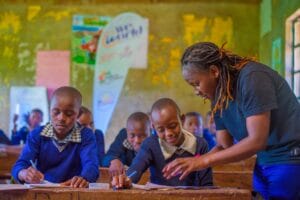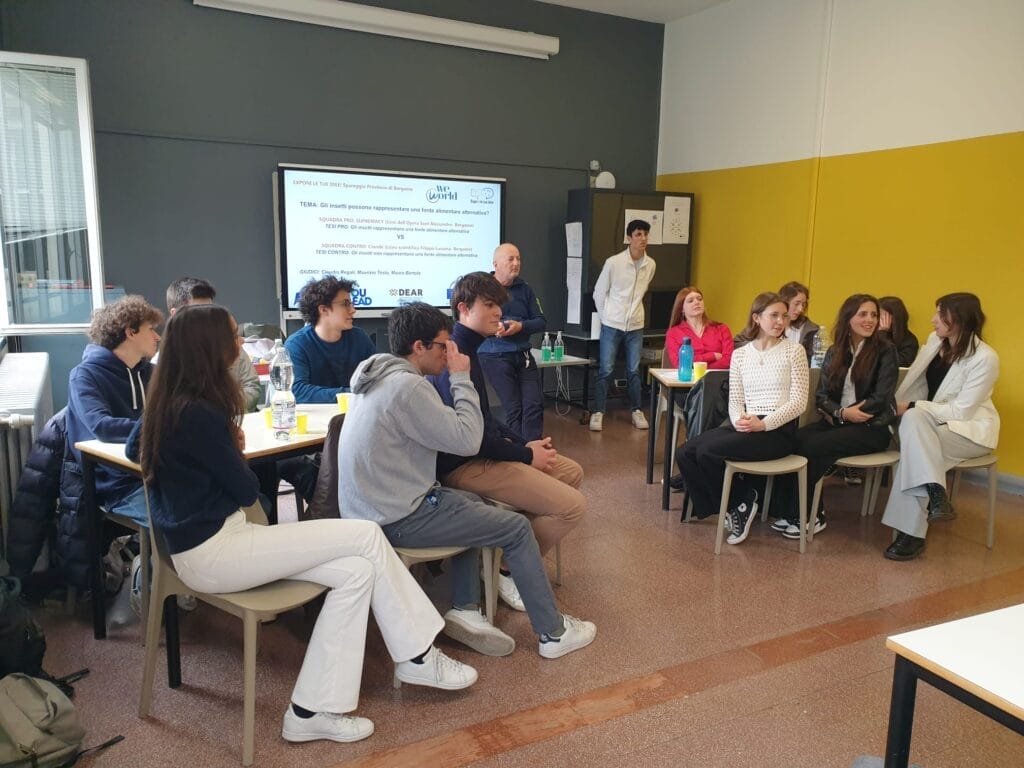
More than 200 participants attended the European multistakeholders event organized as part of the YOULEAD project that gathered young people from five EU countries-Austria, Greece, Hungary, Italy, and Slovenia. Boys and girls who participated in the event, held online on March 22 described themselves as "united for a greater good," namely to counter the effects of climate change.
During the webinar, they had the opportunity to talk about their experiences within the project. In particular, space was given to the experiences of some of the 26 young delegates who gathered in Brussels Feb. 15-17 and had the opportunity to present the advocacy manifesto to representatives of the European Commission.
The event was an opporunity to look back at a two-year experience involving 370 teachers and 1966 male and female students. They all had the opportunity to discuss and exchange views at a national and international level to find solutions for climate change-related issues, arguing that "their needs, dreams and rights should not be diminished because of their young age."
They know better than anyone that this Planet is in danger because they were born in the midst of a climate crisis that will get worse by the day, unless we act now. Today's young people have a different sense of time. They look ahead, they are able to think long term because they feel that with their vote, with their strikes, with their voice they can determine the fate of this beautiful but fragile world.
This is why they act and why they want to be heard, so we wanted to let them have the floor.
Eugene Perdikomati from Greece and Diletta Zanolli from Italy talked about the debates that the students were involed in. The theme of the meetings was climate change, a complex issue that involves multiple interests around the world and for which finding solutions implies the need to find agreements. For this reason, the students found the opportunity to learn the basic skills of debate methodology important.
An important part of the YouLead project is to give young people the opportunity to be actively involved in the democratic system. That is why a survey was conducted in the 5 EU countries to understand their perception of democratic participation and the values of the European Union. Narrating the main and most surprising results of the survey was Chiara Cipolla from Italy.
The meetings and trainings (provided in WP18 and 19) allowed students to summarize their demands in a manifesto: 26 delegates from the 5 EU countries went to Brussels (WP20-Wp21) to present this document to some representatives of the European Commission. Dimitris Kouvaras, from Greece, called it an exciting and inspiring moment. Matilde Lumassi from Italy and Aleks Glišović from Slovenia talked about the demands contained in "OUR FUTURE IN PRESENT TENSE: A YOUTH MANIFESTO FOR OUR FUTURE" - the final document the students created because they believe that "politicians, being in a position of power, need to be empowered because they can make a substantial difference". Margherita Campa from Italy, on the other hand, told that the YouLead project enabled young people to gain awareness about important issues and take action to change the current situation. Therefore, she explained how even small everyday gestures can make a difference.
Numerous stakeholders also participated: from Austria Wolfgang Aschauer, a member of the Advisory Committee for Development Policy of the Federal State of Salzburg; Fanni Kiss, a Hungarian Master's student in International Public Service Relations at the National University of Public Service; Ziva Kavka Gobbo from Slovenia, president and senior expert of the Focus Association for Sustainable Development; and Katia Longo from Italy, co-referent of the ASviS Cross Working Group "Youth Organizations." All of them reminded younger people of the importance of acting both individually and collectively to enable systemic change. To the connected boys and girls, they suggested advocacy and lobbying as tools to engage directly with institutions and demand urgent action. They also stressed the importance of education in schools and communities to disseminate concepts and tools to understand and address climate change.



